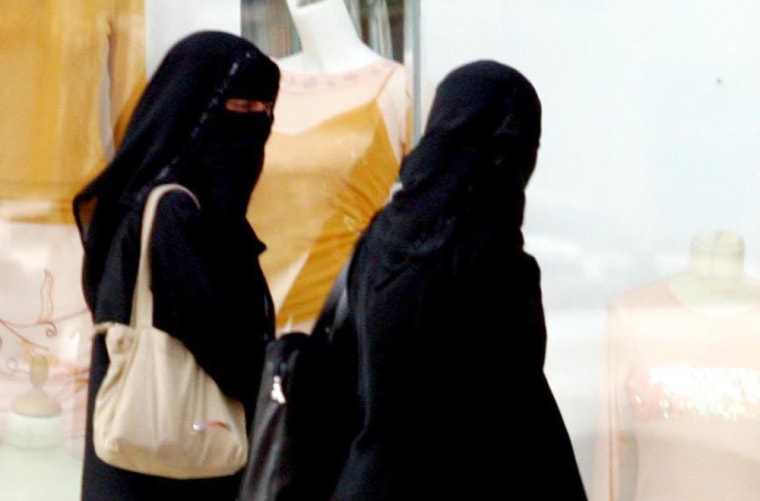Women will not be able to participate in Saudi Arabia's first nationwide elections because authorities in the strictly segregated country did not have enough time to prepare for both sexes to run and vote, the head of the elections committee said Tuesday.
Prince Mansour also could not say whether women would be allowed to take part in the next round of municipal elections in 2009, stressing that would be up to the committee planning those polls.
The electoral law has no provisions explicitly banning women, he said.
“It’s difficult, given the limited period of time we have, for ladies to participate in the elections,” the prince said at a news conference. The committee had a year to prepare for the polls, scheduled to begin Feb. 10 around the capital, Riyadh.
Prince Mansour was not specific, but separate polling areas run by female election judges presumably would be required. Because unrelated men and women do not mix in Saudi Arabia, campaigning by female candidates also could become a sensitive subject.
Saleh al-Malek, a member of the elections committee, acknowledged that “social constraints” were also a factor. Saudi Arabia, the birthplace of Islam, imposes strict restrictions on women, and conservatives feel that giving freedoms to women would lead to the corruption of society.
Al-Malek said the upcoming elections are a “first experience. ... We don’t want it to be a failure.”
“It’s up to the royal court to say yes or no to when women can participate,” he said.
Other voting in March, April
Polling in the eastern and southwestern regions will follow the capital, starting March 3. Voters in northern parts of the country will vote April 21.
Saudi Arabia’s only electoral experiences were some municipal polls held in a few cities in the 1960s. They did not cover the whole country, and their electoral rules and registration procedures did not conform to international standards. Women did not vote.
The elections committee has chosen a slogan for the process, “Take part in decision-making,” one that is directed at those eligible to vote — men over 21.
Mansour said that to “lay down the correct and sound basis” of running the electoral process, the committee got help from experts at the United Nations, a local law firm and a German company that specializes in such services.
The elections are part of the government’s measured response to calls for political and social change. Saudi Arabia is an absolute monarchy with an unelected Consultative Council, which acts like a parliament. Political parties are banned and press freedoms are limited.
